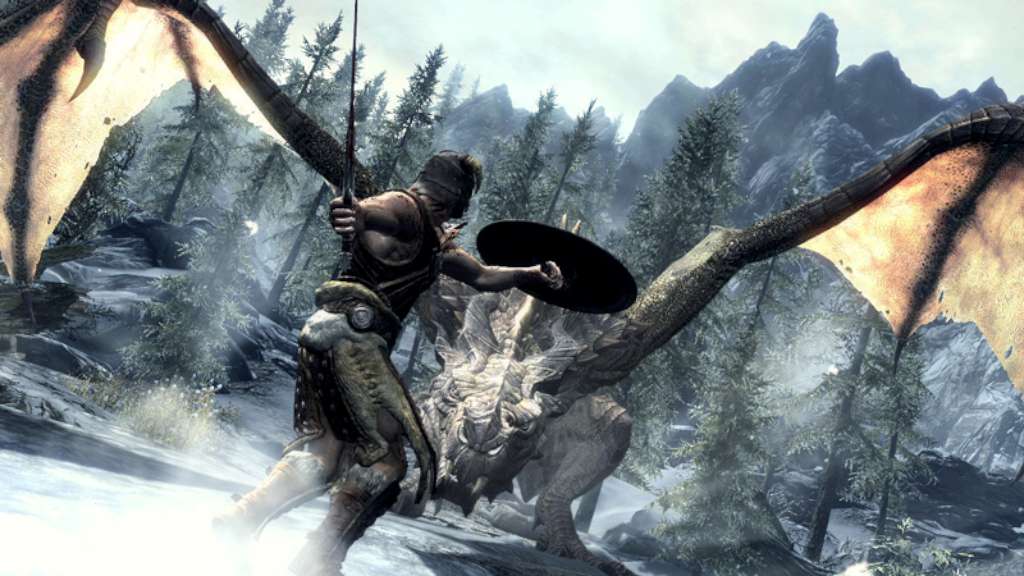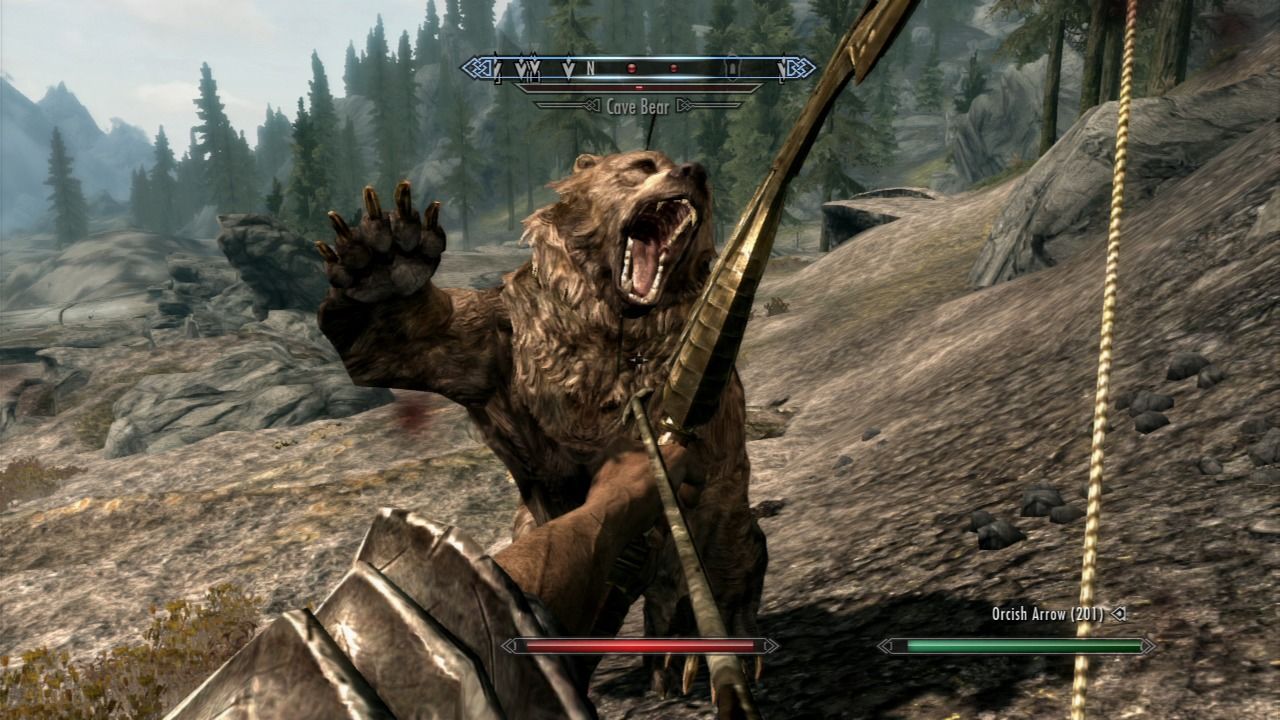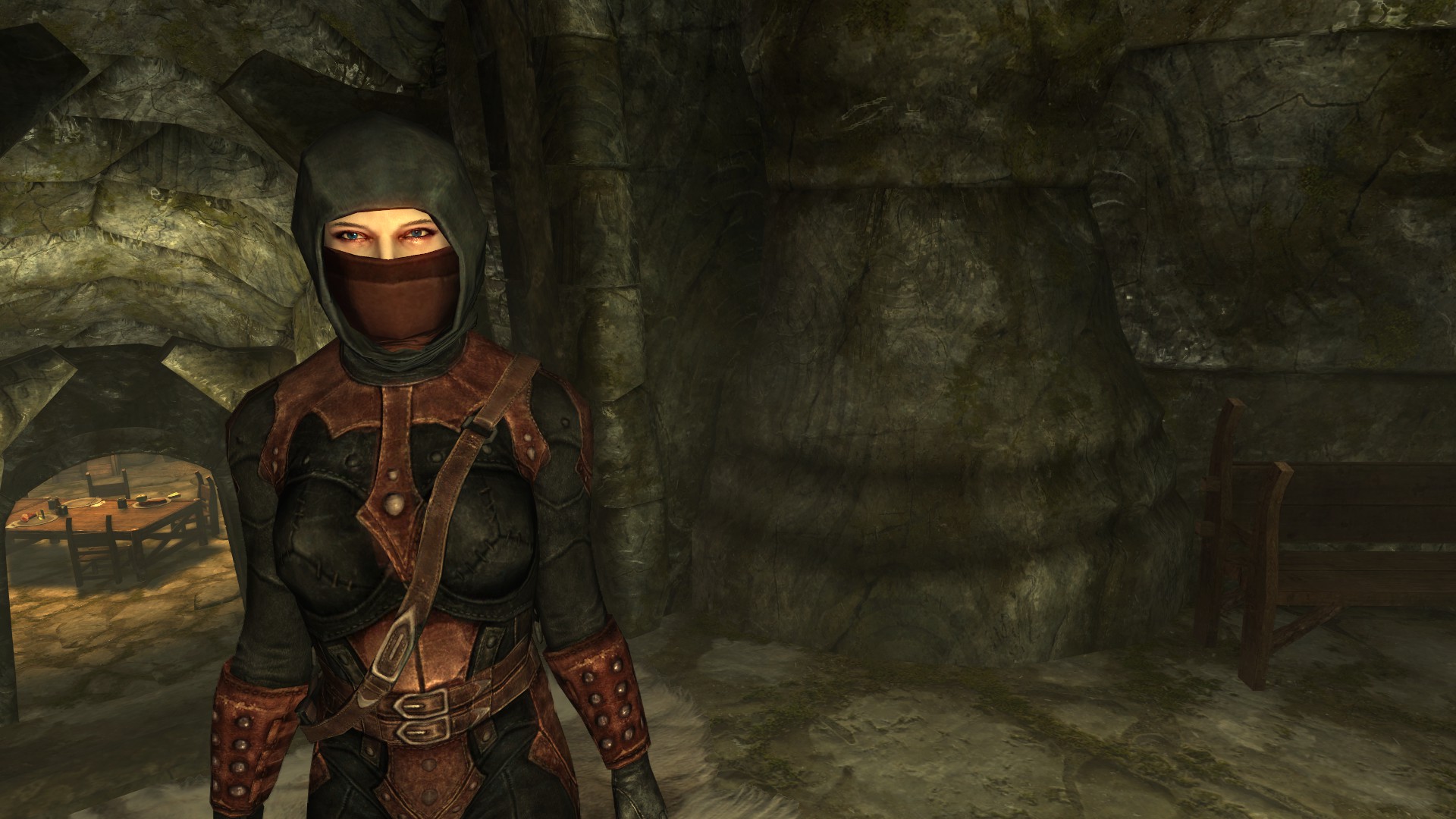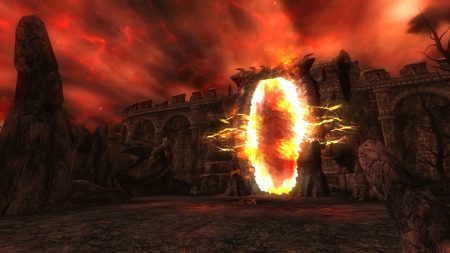Was This Ever Really the Best Gaming Could Do?
Before I begin my parade-raining, dream-crushing, actually-what-you-like-is-bad analysis of one of the most popular video games of my lifetime, let me make something clear: I like The Elder Scrolls V: Skyrim. Many of the quests are fun, the world is pretty, the controls are (mostly) streamlined and intuitive, and the open-ended nature of the game makes it a welcoming experience for traditional RPG fans.
Now, time for my unpopular take: Skyrim is overrated and has no business being considered one of the best games of the last decade. It’s by no means the best western RPG of our time or any time nor is it even the best Bethesda game of its generation (that honor, of course, goes to Fallout 3). Sure, it was a technical marvel for its time and one of the most approachable open-world mega-RPGs ever made, but its time as THE definitive role-playing experience has expired.
Disclaimer: While I’ve been familiar with the game itself since its late 2011 launch, I never actually attempted a play-through of my own until last December when it came out on the Nintendo Switch.

Why is it So Popular?
The Elder Scrolls V has become more than just an RPG gamers usually like; it enters damn near every corner of nerd culture in some form. From webcomics to references in other games, Skyrim has in several ways dominated gaming culture since its 2011 release. Every page of the r/gaming subreddit has at least one Skyrim post each day, and nearly every major RPG released after Skyrim has drawn comparisons.
Bethesda itself has fostered the game’s popularity as well, releasing enough ports and remasters of the title to have become meme-worthy. Anytime a new platform emerges, be it virtual reality headsets or the Nintendo Switch, Bethesda will find a way to have that new device play Skyrim.
How did it get this way? Obviously, Skyrim received tremendous reviews upon its release and sold remarkably well. Then again, so did New Super Mario Bros. Wii, Call of Duty: Modern Warfare 3, and Nintendogs, and none of those games have remained part of the greater gaming conversation, and certainly not six and a half years after their release. Also, it’s not like Bethesda hasn’t made other games since (they’ve even released other Elder Scrolls games), so what makes Skyrim so special in the hearts of gamers and the game’s very designers?
From my view, it is Skyrim’s very okayness that has made this possible. It’s not bad enough at anything to turn too many people away, and it’s just good enough at everything to keep players interested. Clearly, some truly do regard Skyrim as a masterpiece, but every talking point about the game’s positives has also been used to describe its successors, many of which have built on Skyrim’s strengths and mitigated its weaknesses.

Skyrim Does Pretty Much Everything Just Fine, But Not Great
Skyrim’s core concept and functions are sound. Trigger pulls and well-timed button presses result in engaging real-time combat. The item management is clear and easy to learn even for the least experienced of gamers, and the high number of open-ended quests allows for a game that people can play in just about any way they like. In addition, the character creation tools, customization options, and lack of player hand-holding allows for a remarkably open-ended experience, one where the player can truly create their own story. Plus, the world of Skyrim is enormous and varied, with every city and region having its own character and set of challenges.
While the opportunity for a truly imaginative experience surely tantalizes RPG fans of every ilk, it’s tough to argue that Skyrim really does everything (or much at all) better than many games that came after it (or even some before it). Some of Skyrim’s more apparent issues are merely a result of aging, but others stem from a lack of ingenuity.
For example, the combat in Skyrim makes enough sense, but the genre has made strides towards battles with lock-on and hitbox systems and away from “FPS but with swords and flame hands,” as best represented in the Souls games. Swinging an axe in first person without much precision may have worked in 2011, but now feels obsolete; it doesn’t make sense that a powerful, skilled warrior wins all his fights by simply swinging recklessly. Dark Souls forces the player to think hard about every single sword swing or spell cast; Skyrim says you’ll be fine as long as you are running around your opponent in circles. The game offers multiple forms of combat through bows and spells, which allows the player to choose their own fighting style, but once again makes combat about breadth over depth.

Many have lauded the game’s enormous number of quests and depth of storytelling. There certainly are a great number of tasks to perform at any time, but I wouldn’t say the quests themselves are always particularly interesting. They may not all be “time-wasters” or “fetch quests” (or any other gaming cliché), but often they appear a bit shallow on the character development side; so many NPCs you encounter obviously have ulterior motives, but never appear sincere enough for the revelation of such motives to spark so much as the mildest of gasps. Other characters are one-dimensional at best, without much purpose in the game beyond “quest-giver.”
Clearly, in a game as large as Skyrim, certain quests will stand out, and I would be remiss if I ignored some of the more nuanced and well-written plotlines. The Dark Brotherhood and Thieves’ Guild sequences have their fair share of suspense, character development, and action without pummeling the player with moralization and didacticism. These questlines never assume the player to be anything more than a pragmatic, self-interested person who seeks to learn more about the darker underbelly of the land the player inhabits. That kind of brutal honesty isn’t always found in popular adventure games or RPGs, which so often want the player to feel a sense of moral justification for largely villainous behavior.

The quality of these particular quests, however, underscores the failures of many of Skyrim’s other storylines. Sure, murder and thievery plague this universe, which presents itself as a “kill or be killed” environment, but the opposite is hardly explored. The world presented in Skyrim is bleak and oppressive, sprinkled with the occasional tavern bard and pretty vista. But where is the joy? Where is the fun? The Witcher 3 has its fair share of gravitas, but still has quests involving local theater, fairy tales, pub games, and wedding merriment. Hell, even Fallout 3, one of the bleakest games I’ve played, has its moments of comic relief and measured optimism. Skyrim never feels like anything more than survival of the fittest in a war-torn hellscape (albeit a very pretty hellscape). It makes perfect sense that the killing and stealing quests are the best ones.
The best thing Skyrim has going for it, however, is its character creation system as part of its greater focus on customization. There are seemingly countless ways to alter the appearance and race of your hero (or antihero?), and the game’s open-ended nature allows for the player to create their own story. You can play as a mercenary, wandering wizard, guardian of children, dragon hunter, necromancer, secondhand merchant, blacksmith, etc. Skyrim offers a wide range of possibilities, more so than virtually any major console RPG I’ve encountered.
That said, the breadth of options takes away from the depth of each choice, as it’s hard to get a handle on a real story when the game isn’t catered to a singular character or storyline. I suppose this is largely a personal preference, but I was never able to form some kind of appreciation or reverence for the character I created, which made it harder for me to relate to anyone else in the game. Geralt of Rivia may be a fully formed person in The Witcher 3 with a very specific history and set of relationships, but his background and attitude made every interaction he had more believable and honest. Link in the Zelda games may not ever speak a word, but the fact that he has some kind of backstory in each title makes his will to save Hyrule Kingdom and all its inhabitants more understandable than if the games just sort of tossed you in the middle of the world and said “save the princess.” I can understand gamers wanting as much wiggle room as possible when establishing their own narratives, but telling the player “you’re dragonborn, now do things I guess” feels more like a prompt that justifies your existence without actually giving that existence purpose.
Therein lies my greatest issue with Skyrim: pretty much all of it is fine, but not much more than that. The combat is fine, the quests are fine, the movement is fine, the environments are fine. (The music, on the other hand, is phenomenal.) Sure, some of my criticisms may seem nit-picky, but that doesn’t mean the game’s alleged strengths amount to anything more than merely working just well enough to not be terrible.

Closing Thoughts
Skyrim might be the most approachable open-world RPG ever made. The combat is challenging but not punishing, and its item management lacks the frustrating clutter of The Witcher 3 or even Ni No Kuni II. The game contains enough quests and story branches so that any kind of player can enjoy their own experiences in any way they please, and the open world is interesting enough that wandering through it won’t be a tremendous waste of time.
But is that what we should strive for? Should “approachability” matter if it comes at the expense of greatness? Is broad appeal greater than a more focused experience with a few warts? And what does it say about the gaming world at large if Skyrim remains one of the most well-regarded games of its time despite not doing a single thing spectacularly?
I’m happy with the 30+ hours I’ve spent with Skyrim, and there’s a chance I put even more time into the game soon. Still, when I put that much time into anything, the feeling should usually be better than “that was fine.”
Sam has been playing video games since his earliest years and has been writing about them since 2016. He’s a big fan of Nintendo games and complaining about The Last of Us Part II. You either agree wholeheartedly with his opinions or despise them. There is no in between.
A lifelong New Yorker, Sam views gaming as far more than a silly little pastime, and hopes though critical analysis and in-depth reviews to better understand the medium's artistic merit.
Twitter: @sam_martinelli.










